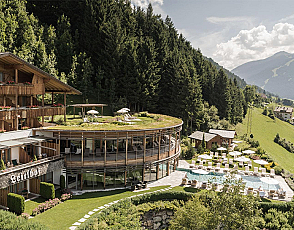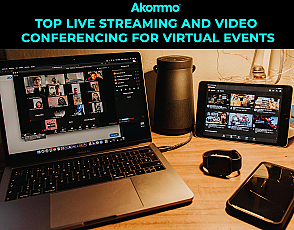
Top Eco-Friendly Hotels in Europe for Sustainable Business Travel
Eco-tourism, a rapidly growing sector within the global tourism industry, is making significant strides toward sustainab...

Practising sustainability is a conscious effort, and it’s one that we can incorporate into every aspect of our lives. Whether we’re at home or at work, we should each be doing our part to ensure a healthy planet for the future. Global efforts are being made to preserve the earth, and businesses around the world are starting to take action. In addition to improving their day-to-day habits, companies are also looking to achieve a higher level of sustainability in corporate events. That’s why we’ve outlined our top tips on how to make your event more sustainable!

Plastic bottles make up an enormous amount of waste, and cities across the globe are taking measures to prohibit their use. Even the EU Parliament has started approving regulations to ban single-use plastics in hopes of curbing ocean pollution. One way to be sure that your event is not contributing to the plastics problem is to refrain from using those tiny water bottles when you’re serving refreshments. Instead, install large water coolers in different areas throughout the room. Encourage your attendees to use them by gifting them with their own reusable bottle - printed with your company’s logo of course! Inox, stainless steel, glass, and even recycled plastic make up the majority of reusable bottles, and all can easily be purchased online and in bulk.

Choose your venues and accommodations wisely: pick a location where the accommodation is within walking distance to the venue. Attendees will avoid adding to the carbon footprint since they aren’t taking individual cabs, and they will be saving money as well! If the conference venue is a bit further and it’s too far to walk from the accommodation, you should definitely arrange transport; hire a local shuttle service that will be able to take your attendees back and forth from the venue and accommodation.

Printed programmes are a thing of the past; there are numerous digital applications for organising activities, instead of using all that paper. Companies looking to go green can use one of the many scheduling software options offered online. In addition to saving trees and heaps of money, you’ll also be saving yourself all that time it would take to print out and collate all those programs. Online applications are fairly straightforward to use, and the only requirement is that each of your attendees download the application onto their mobile devices. If you find that something truly does need to be printed out, be sure to use ecological paper that can easily be recycled.

One of the beautifully convenient things about Europe is its geography, and how easy it is to get from one city -or one country- to another by train. If you’re looking to incorporate sustainability into your corporate event, favour the locations with headquarters near major train stations. By strategically planning a convenient location for your event, you are pushing your attendees towards train transportation. More travel by rail means less flights taken, which ultimately means minimising the carbon footprint.

If your corporate event involves a sit-down dinner, plan ahead when it comes to leftovers- almost one third of the food that is produced globally goes to waste. Being mindful of this will not only benefit your company by earning a humanitarian image, but it will truly aid others in need. Partner up with event planners, restaurants, or hotels that are locally connected with charities or social organisations. This helps to give back and support the local community along with avoiding food and material waste.

Organise a team building activity during your event. People will be more likely to make changes and go green if they know exactly what to do how they should do it. Start by contacting local organisations and inquire about their community outreach and education programs. Check to see if it is possible for them to speak to your attendees to raise awareness on climate change and how they can adapt their individual behaviours in order to make a difference.

Nowadays, intercontinental travel has never been so easy. More and more people are travelling each year, and it isn’t exactly eco-friendly. With the growing number of travellers comes rising CO2 emissions, and the carbon footprint of flights has never been higher. When organising corporate events, make an effort to plan ahead. Schedule your events and conferences by continent in order to avoid flying back and forth between sites- instead of flying multiple times to the same city. Be resourceful when it comes to taking notes, saving documents, and recycling information that could be reused for future event venues.

Zero km food is a phrase that comes up when talking about sustainability and diet. The concept simply means that you want to eat food that has been grown, produced, and sold locally. Try and avoid foods that have travelled overseas for import; the fewer kilometres the food and produce have travelled, the better. Do your research when it comes to local markets and reach out to local farmers. Check with your event planner to make sure the food you eat is as Km 0 as possible.
Browse the latest tips, tricks, & venue updates from Akommo

Eco-tourism, a rapidly growing sector within the global tourism industry, is making significant strides toward sustainab...

Never, in the history of the world, have we been so dependent on technology. The pandemic has forced us to rely more hea...

Jason Greenman - CEOMental Health:He just finished reading Atomic Habits, an inspiring book that encourages you to imple...

The MICE (meeting, incentives, conferences, and exhibitions) and hospitality industries have been two of the hardest hit...

We are facing a global pandemic that is affecting the lives of everybody on the planet. Most of us have been confined to...